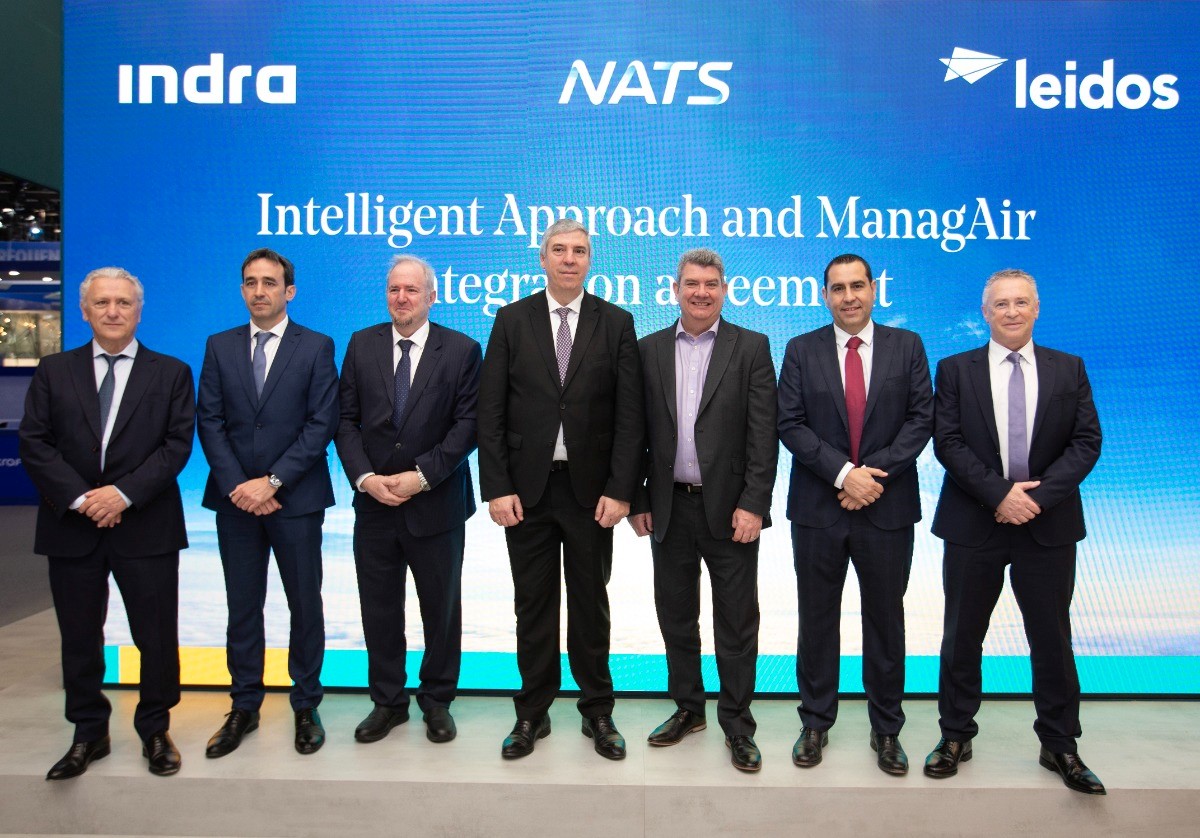INDRA facilitates Riyadh and Mendina Airports to operate in the event of sandstorm

Indra has recently won contracts to equip the international airports King Khalid, in Riyadh, and Prince Muhammad bin Abdulaziz, in Medina, with the most advanced systems for monitoring and guiding aircraft movements on runways and taxiways (A-SMGCS), a technology that the company will provide to SANS (Saudi Air Navigation Services) so that it can maintain maximum management capacity and performance at both airports, even in the event of a sandstorm.
Throughout this year, Riyadh and Medina have experienced severe storms that have reduced visibility to a minimum. Under these conditions, air and land access to these cities is severely limited.
To avoid this and reduce delays and losses, Indra will introduce technology that will allow controllers in the towers of both airports to see aircraft and vehicle movements in the airfield on a screen, without the need for visual contact. Superimposed on a digital cartographic representation of the airfield, movements will be tracked and identified in real time, at all times.
The system will alert to any potential conflict so that the controller can intervene if necessary. In this way, the airport will not have to stagger landings to maintain safety in low visibility situations. SANS will thus improve the quality of the service offered, which will be reflected in its income. The benefits will also be extended to the entire network of airfields with which they are connected.
Indra’s A-SMGCS system will incorporate the most advanced control positions for the tower staff and the most advanced multilateration systems and surface radars to monitor any movement on the taxiway and flight areas. It will also deploy a Wide Area Multilateration system (WAM) that will extend surveillance for up to 50 nautical miles from each of the two airports.
IIndra’a A-SMGCS technology has been designed to support the operations and expansion of the most advanced airports in the world. It facilitates the work of controllers, as they have all the information before authorising an aircraft to enter a runway.
Better air traffic surveillance
Indra will implement an advanced Wide Area Multilateration (WAM) system to monitor every movement that occurs in the airspace surrounding Yanbu airport, (Yanbu is an important industrial city on the Red Sea), as well as Riyadh and Medina Airports.
The system will collect information about the position of each aircraft in the terminal control areas of each of these cities. Spaces of this kind, in which a large number of routes converge, are separated from the rest due to their complexity, so that they can be managed with special attention.
Indra’s multilateration system is one of the most advance in the world, due to its reliability and refreshment rate. It is specially adapted to manage complex airspaces.
With these new contracts, Indra strengthens its leading position in the air traffic sphere in Saudi Arabia and the entire Arabian Peninsula. The company works with SANS on the modernisation of its main air control centres with the aim of making the county the preferred base of operations for airlines connecting Asia with Europe and the rest of the world.
This is an important source of income for Saudi Arabia, not only for the fees charged to flights using its airspace, but also because of what it means for sectors of the economy such as tourism and industry: It follows the Vision 2030 strategy of the Saudi Arabian government, which aims to reduce dependence on oil revenues by diversifying the economy.

.png)
.jpg)








Comments
There are no comments yet for this item
Join the discussion